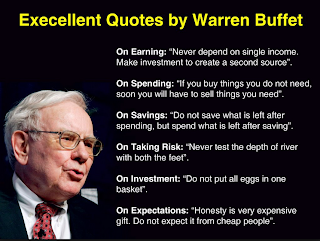Research says to pick an investing strategy and stick to it. That's a lot easier to do when it's a plan you believe in.
What’s the right way to invest?
Most people I talk to about money end up asking me some version of that question. Heck, I continue to ask it myself as I try to ensure that I’m always giving my clients the best advice possible.
The question comes from a good place. You work hard for your money and you want to make sure that your money is working hard for you. You have important goals to reach and your investment plan has to help you do it.
But there’s an assumption inherent in this question that can get you into trouble.
Because the truth is that there is no right way to invest. And the search for the right way to invest can actually lead to more problems than solutions if it causes you to continually change your investment plan in pursuit of the newest best idea.
Instead, I would encourage you to accept that the best investment plans are a mix of science and emotion, and incorporating both gives you the best chance at success.
The Science
The science of investing comes from decades of research and it can teach you some best practices.
It explains how different types of investments work, shows you some simple strategies that will improve your odds of success, and help you create a “good enough” investment plan to help you reach your goals.
For example, here are a few things we believe to be true based on the best scientific research on investing we have to date:
- Stocks offer the greatest opportunity for big returns, but also the biggest risk that you won’t actually get those returns.
- Bonds provide a smaller return, but with more certainty that you will actually get it.
- The longer you stay invested in the stock market, the more likely it is that you’ll get a positive return.
- Regularly changing investment strategies or trying to move in and out of the stock market with the ups and downs is likely to lead to poor results.
- Factors like how much money you need and when you need it should influence your investment strategy.
- The less money you need, the more conservative (and therefore certain) you can be with your investment strategy.
- The longer you have until you need the money, the more aggressive you can afford to be (because you’ll have longer to ride out the down periods).
- If you’re investing for the long term (10+ years), some significant investment in the stock market is likely a good idea.
- Costs matter. A lot. The less you pay for your investments, the greater your chance of success.
None of these things is absolute. Nothing in the world of investing is. But these are the best practices we’ve learned from the best scientific research we’ve been able to do. And they should serve as important guidelines as you create your investment plan.
The Emotion
All of that science is great, but it’s inexact. It gives you a range of possible strategies that could work, but it doesn’t provide one right answer.
And here’s the other thing: We know from decades of experience that one of the best things you can do is simply pick a plan and stick with it through thick and thin.
That consistency, almost more than anything else, is what really leads to success. And that’s where your emotions come in.
See, we aren’t robots. We can’t just input “optimal investment plan A” and expect to stick with it forever.
We are humans, and humans have emotions. And those emotions affect our decisions whether we like it or not.
For example, you may hear that you’re supposed to be heavily invested in stocks because you’re relatively young and have a long time before retirement. That’s the conventional wisdom and there are good reasons behind it.
But there’s also the fact that being heavily invested in the stock market means that your account balance will rise and fall dramatically with the ups and downs of the market.
Some people are comfortable with that. Some aren’t.
If you aren’t, it’s much better to acknowledge that ahead of time and choose to be a little more conservative.
That will increase your comfort level, which will increase the chance that you’ll actually stick to your plan, which will increase the chance that you’ll actually reach your goals.
And that’s just one example. As you do your research you’ll come across many other right ways to invest. And while some of them can absolutely serve as helpful guidelines, understand that they usually aren’t hard and fast rules.
So take stock of your emotions and include them in your decisions as well.
Science + Emotion = Best Chance of Success
The best investors use science to understand best practices and determine the range of “good enough” investment strategies.
Then they use emotion to choose a strategy that not only fits within that range but that they understand and feel comfortable with.
It’s the best of both worlds, and it’s the key to long-term success.
Source: http://www.thesimpledollar.com/science-emotions-and-investing/





